How to Haggle When Traveling: Your Complete 2024 Guide
You might be interested to get a better understanding of how to haggle when traveling before you set off on your adventures around the world. Haggling is acceptable and commonplace in a lot of different countries.
Haggling is particularly common in the Middle East, South America, Northern Africa, and parts of Asia. However, you may find that even when traveling to European destinations like Greece, the prices of goods in marketplaces are not always necessarily fixed.
This means that there are often great deals to be had if you negotiate on the price. If you can haggle effectively, you can save yourself some money.
A lot of people find the concept of how to haggle when traveling to be quite intimidating. This is particularly true if you come from a Western Country such as the UK or the United States where haggling is not commonplace.
Trying to negotiate the price of something can feel awkward or even downright rude if you are not used to it. However, in some places, not only is haggling not rude, but it is also expected.
If you travel to countries such as Oman and Jordan in the Middle East, for instance, the prices that you are initially quoted at markets and suits are heavily inflated. Both tourists and locals alike are expected to haggle in order to reach a lower price point that both the customer and the vendor are happy with.
Since many tourists are unaware of this fact, they often pay the first price quoted to them and end up overpaying. (Great for the vendor but not so great for the tourist!)
How to haggle when traveling

This guide on how to haggle when traveling breaks the process down into simple steps. You should look at haggling when traveling as a fun new experience.
Shift your mindset away from it being something stressful and awkward. Who knows, you may even enjoy the challenge of it!
Take it step by step and remain calm. This guide will also discuss the ethical considerations of bargaining while traveling.
Haggling when traveling in 12 steps

The process of successfully haggling when traveling can be broken down into twelve key steps. These are outlined below.
The aim of the negotiation is to meet a midway price point with the vendor. This way you agree on a price that you are both happy with. The vendor is not losing money, and you are not being ripped off.
Shop around
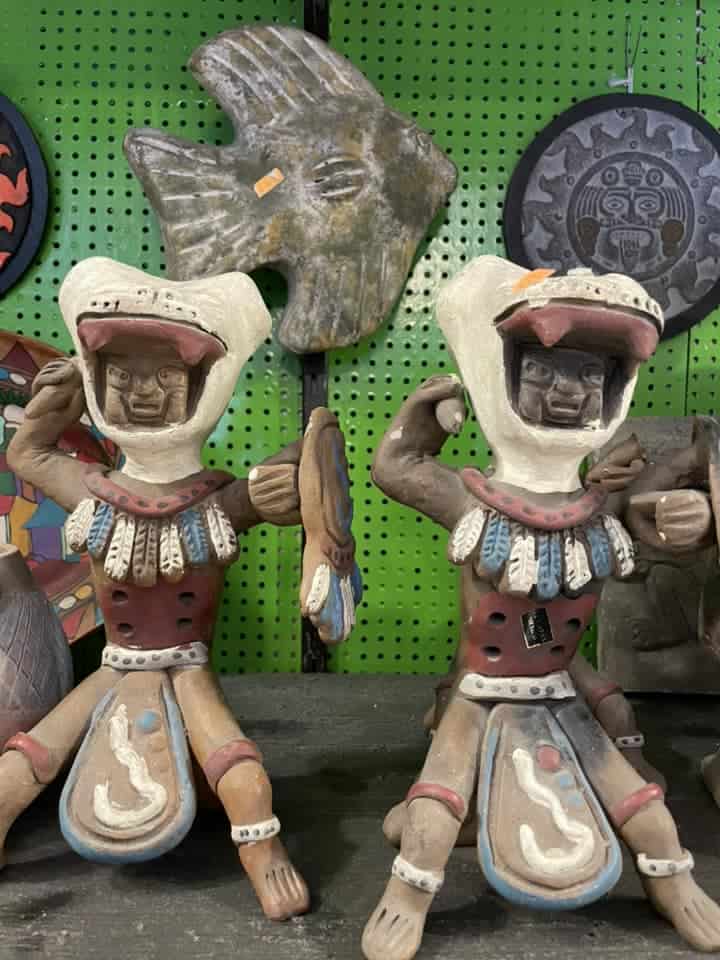
If you are meandering through a souk and you have an item in mind that you want to buy, shop around. Never wander up to the first stall that you see and accept their prices as the going rate.
You will often find that the prices of items vary substantially from one vendor to another. Say for example that you are hoping to purchase a scarf.
Don’t be surprised that in some places, certain vendors price their scarves 50% higher than their competitors.
First of all, they expect you to haggle when traveling. Second of all, they believe that you are going to accept what you tell them as the “true” price and that you are not going to bother checking the prices elsewhere.
Always shop around before committing.
Scan the various stalls and make a mental note of the prices charged. You can then use these as a benchmark in your negotiation.
For instance, if you find a scarf that you like, and the vendor is trying to charge an extortionate fee, tell him what his competitor is charging. Let him know that you won’t hesitate to take your business elsewhere.
Once you have established a starting price, you can begin haggling from there.
Don’t show that you are super interested
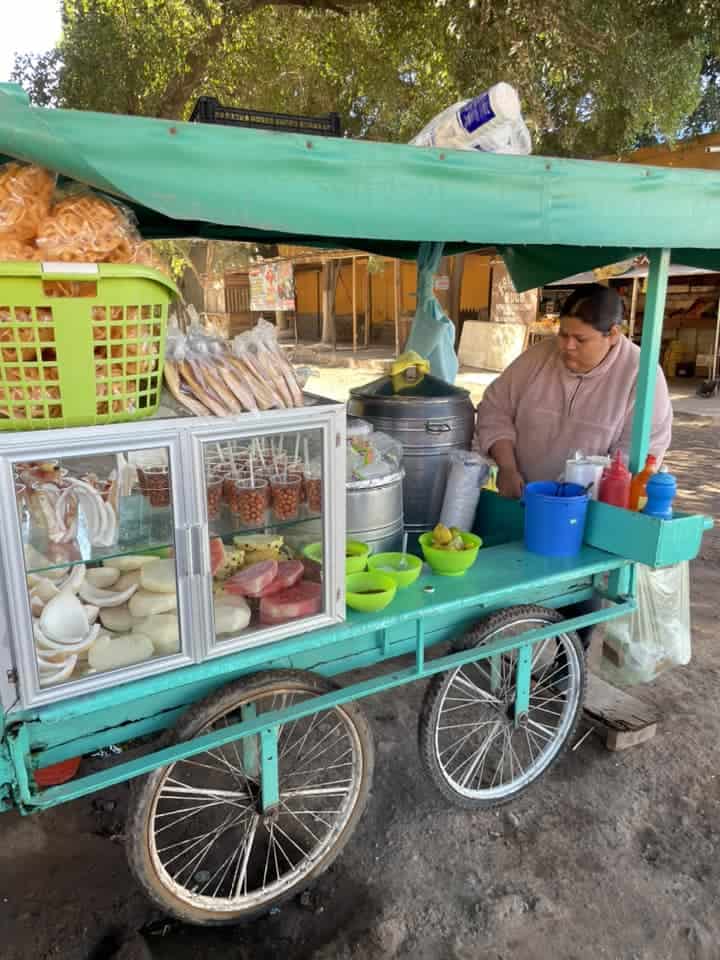
In parallel, it is also a good idea not to look too interested. For instance, if you run up to the first item that you see when you spot it from afar, like someone being reunited with a long-lost love of their lives, the vendor will see your level of interest.
If someone can tell that you really want something, they will assume that you will be more willing to pay a higher price for it. Meanwhile, if you look nonchalant or like someone who is not interested, they will try harder to get your attention and to get you to buy something.
Never accept the first price

Vendors at souks and bazaars always expect you to haggle. This cannot be reiterated enough.
As a rule of thumb, you should aim to get the final price at least 30% lower than what is initially offered. The first price is always, always a substantially inflated price.
It will be presented to you as such because this is customary in the vendor’s culture. Never take the first price offered.
Of course, if you DO take the very first price, the vendor will assure you that you are getting a great deal, a bargain, etc. However internally he can’t believe his dumb luck that you didn’t even attempt to negotiate.
When you start the negotiations, go in by offering 30% of the initial asking price. Of course, you are never going to end on this 30% pricing point, but it’s better to start the negotiations lower.
The vendor will scoff and tut in disgust at this insulting price. You can work your way up from there until you find a price point that you both agree on.
Consider how much you are willing to pay

Consider how much you are willing to pay before you are going into the negotiation. If it’s something that you don’t really care about, you may be fine walking away if the vendor won’t budge on the pricing.
Alternatively, you may be willing to pay a little more if it’s something particularly fabulous, that you will cry and lose sleep over if you don’t obtain. A magical, colorful beauty of a scarf that you’ve dreamed about all your life perhaps.
You may never be in this part of the world again. You may also never encounter another one of these items.
So keep that in mind when trying to haggle. Keep your maximum price in the back of your mind throughout your discussions.
Build a rapport with the vendor
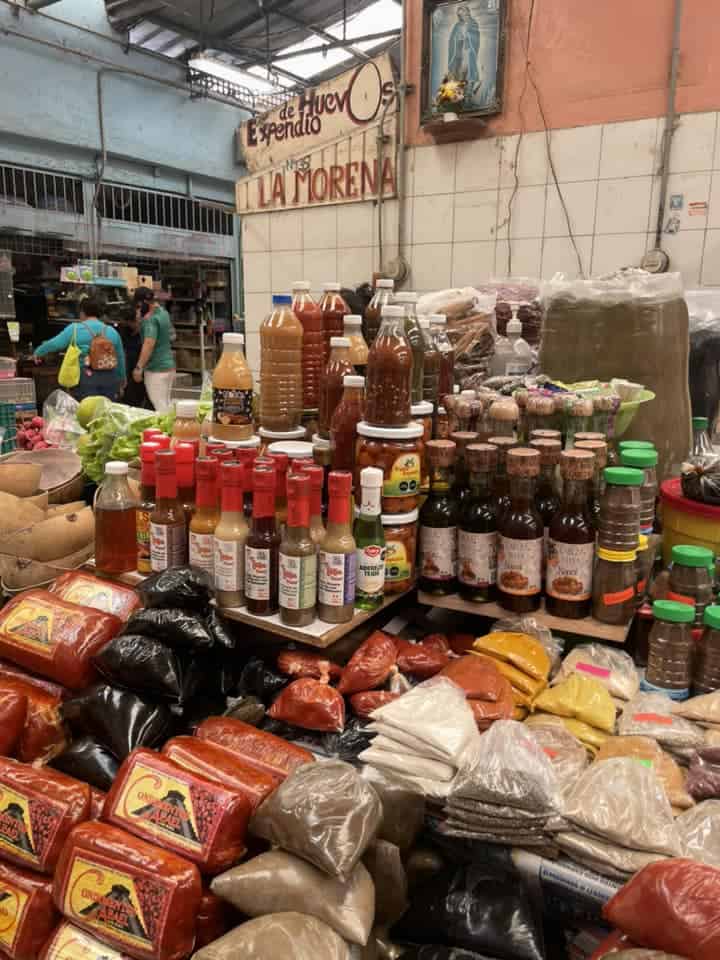
Various different countries have different cultural norms when it comes to haggling and negotiations. For instance, if you find yourself in a market in Turkey, it is customary to be offered an apple tea or some light snacks while you browse the marketplace.
Obviously, the vendor’s goal is to sell you something. They want to have you feeling relaxed and comfortable.
After all, if you spend an extended period of time in their store you are more likely to make a purchase. Still, that’s not to say that these interactions and offers of hospitality are not genuine.
We are all human after all. Obviously, you shouldn’t be naive.
But at the same time if you build up a rapport with the vendor, ask him about his life in the city, his business, etc, you build a more personal connection. It is better to develop that than to simply waltz right up to the stall, request a price for something, and go full throttle into cold, sterile haggling.
If the vendor likes you and feels as though he knows you and your story, he is more likely to offer a good price. Why would he do the same to someone rude and pushy?
Ask locals for advice and guidance
Before you head out to the bazaar, ask locals what they believe is the going price for the item that you are looking to purchase. You could also ask fellow shoppers what you think, however depending on where you are, they may not speak English.
Ask a front desk clerk, an Airbnb host, or a friendly waiter for their thoughts. Be mindful though of over-friendly locals on the streets that suggest that you try their friend’s/cousin’s/brother’s store.
More than likely they are obtaining a commission and the price may not be great.
Once you have obtained a rough price suggestion from your hotel staff or whomever, you can whip this out as a reference point during your negotiations with the vendor. This is a very useful bargaining tool.
The vendor now knows that you know the “local price” so he cannot trick you. You know the rates.
Make optional use of dramatic gestures
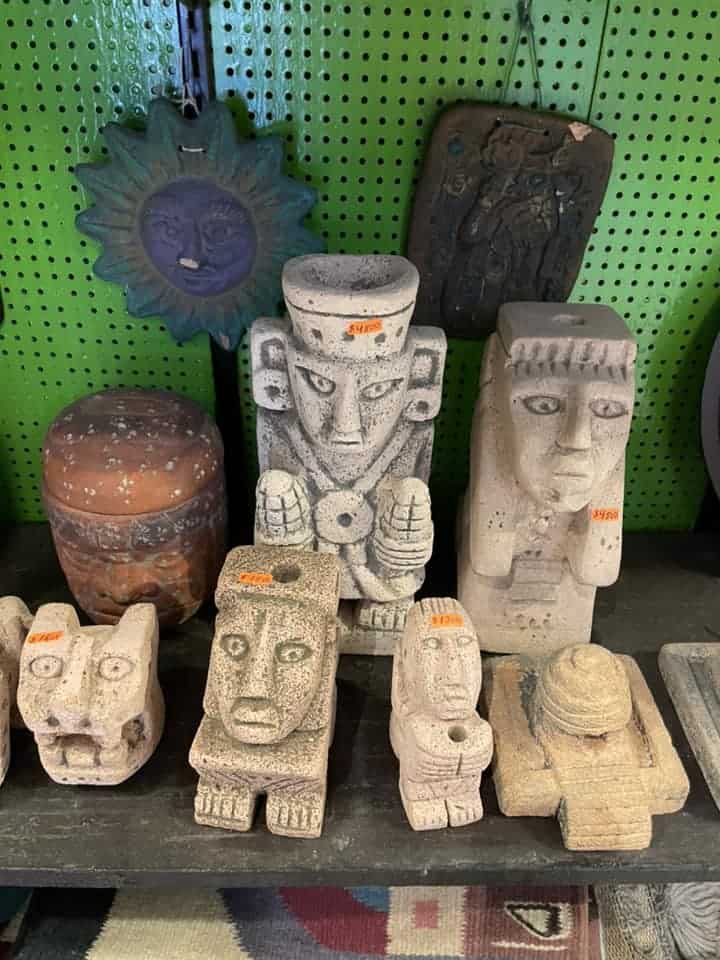
Body language is a huge part of communication. This is particularly true in certain parts of the world when it comes to haggling and negotiations.
There are several gestures and actions that you can use to express your dissatisfaction with the prices quoted. Tutting, scoffing, and making loud, shocked exclamations get your point across. It sounds comedic, but chances are, you’ll find yourself doing these naturally anyway!
See if you can get discounts for buying multiple items
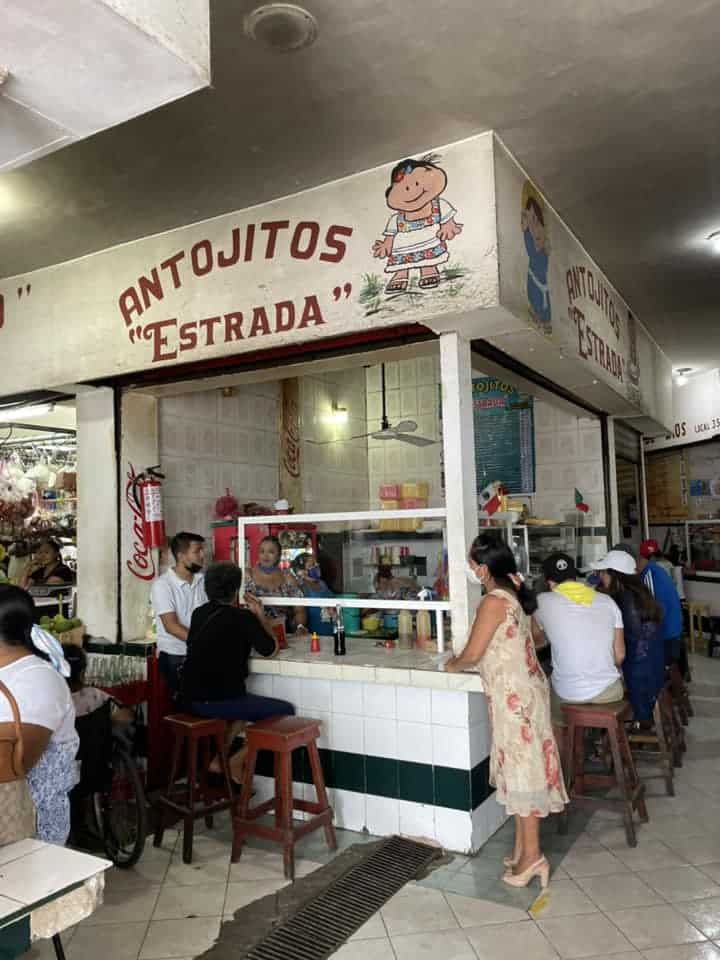
Many stalls offer discounts for purchasing multiple products. Let the vendor know if you are open to this.
Say, for example, the vendor has a beautiful array of mystical, exotic scarves. His store makes you feel as though you have died and gone to scarf heaven.
As such, perhaps you are not satisfied with one little scarf. Maybe you want to go wild and buy two scarves or… wait for it… three or four scarves!
If the vendor knows you’re open to doing more business, he’ll possibly offer a deal for you to make a larger purchase. For example, $15 for one scarf becomes $10 a scarf when three are purchased.
Who doesn’t want a closet full of colorful, exotic scarves?
Be prepared to walk away
If the guy’s really playing hardball and you feel like he’s ripping you off, know when you reach the point when it’s time to say sayonara. Oftentimes, you’ll find that when you begin to walk away from the stall, the vendor will come chasing after you with a better offer.
Sometimes it is easy to get caught up in the process of haggling. The price goes up a little bit more, and a little bit more.
Before you know it, it’s three times as expensive as where you started. Know when to walk away.
Watch what other travelers and customers do
If you’re still nervous, take a look around and see what other people are doing. You can then see firsthand what works and what doesn’t with specific vendors.
It’s interesting to bear witness to the techniques that other people use. Some may point out faults in the item to push for a reduction.
Meanwhile, others may simply haggle confidently and persuasively. When you’re ready to have your turn, pick up your fancy, mesmerizing scarf and go for it.
Don’t flash your money
Try not to come across as a rich tourist when you are wandering through markets and souks. If you’re holding a purse or a money bag that’s bursting at the seams with bills, yet you’re telling this vendor that you can’t afford or don’t want to pay the rate he’s proposing, he’s going to continue to push it and not move on his offer.
He knows you can afford to pay the extra.
If you’re going to a market to buy something, set aside your “shopping money” separate from all of your travel cash. This both allows you to budget and doesn’t reveal all the cash that you’re carrying around.
Don’t beat the vendor down
Always have some empathy when you’re haggling. Acknowledge that there are instances where you may pay a little more than the locals.
However, as long as the extra amount isn’t extortionate, then it isn’t always necessary to keep pushing and pushing the vendor.
Remember that these people may earn a lot less money than you. They will have a family to support, and bills to pay, and what is just a little extra for you will go a long way for them.
Don’t get caught up squabbling over the last 50 cents. This money will probably go farther for them than it will for you.
Carry small denominations of change
If you have successfully managed to haggle when traveling and you have confirmed a price with the vendor, it is time to pay up. It is a good idea to make sure that you have appropriate/small denominations of notes and coins on you to make purchases.
This is particularly important if you are somewhere where the costs of things are substantially lower than what you are used to in your home country. Many vendors in markets, souks, and bazaars in certain countries will only accept cash payments.
If you have just been to an ATM/currency exchange and all you have are large bills, it is a good idea to try and change them. Alternatively, make a purchase so you have smaller notes first.
It is both rude and awkward to pay a vendor with a huge bill that you will need some change from if you have spent the last 30 minutes haggling over a few dollars.
FAQs on how to haggle when traveling

Do you have any further questions or concerns about how to haggle when traveling? The answers to some FAQs on the topic are detailed below.
Hopefully, you will find the information that you are looking for there. If not, feel free to reach out!
What do you say when haggling?

There are a few useful phrases that you can keep in your repertoire to help you haggle when traveling. For instance, if a vendor keeps insisting on a higher price, you can tell them “My maximum budget is X”.
That may be a hustle or it may be true. But it will let the vendor know that that is all he/she is going to make from you and they will be more likely to compromise if they think you have a spending limit than if they think you have deep pockets.
You can also tell them what their competitors offer as a benchmark to encourage them to lower their prices further. Or, you can say “I’ll pay X but only for you/only because you seem so nice!”
What percentage should I haggle?
When haggling overseas, depending on the country that you are traveling in, it is reasonable to expect to settle on a price that is approximately 25 to 30% lower than the price that you were quoted in the first instance. When the vendor tells you the initial price of the item, your rebuttal should be a price 40 to 50% lower.
The vendor is highly unlikely to accept this. They may gasp in shock and suggest that such an offer is offensive.
You will barter up and down from there. But ultimately, a 25% to 30% reduction is a very good place to settle.
In markets in European cities like Catania or Athens, the profit margins may be lower than in the Middle East, Latin America or Asia. Here, a 10% reduction from what you were first quoted is reasonable.
Should you haggle in foreign countries?
Whether or not you should haggle in foreign countries depends largely on which country you will be traveling to. It isn’t really customary to haggle in Northern or Western Europe, for example.
In the Balkans and in markets in Southern European countries like Greece and Italy, bargaining to a certain extent is acceptable in markets selling clothing, souvenirs, and fruit/vegetables. (e.g. when shopping in Athens or at the Monastiraki market in Athens).
In the Middle East, Southeast Asia, Mexico, and South America, you are often expected to haggle. Not doing so would mean paying more than the going rate for something.
What countries can you haggle in?
You can haggle in many countries in Latin America. For instance, Brazil, Colombia, Chile, and Ecuador. Similarly, you can haggle in many Southeast Asian countries (Vietnam, Cambodia, Thailand) and many Middle-eastern countries.
Where is haggling most common?
Haggling is very common in Latin America, North Africa, Southeast Asia, and the Middle East.
Final thoughts on how to haggle when traveling

The most important thing to remember about haggling when traveling is to just relax and try to enjoy the experience. Think of yourself as an exotic traveling merchant lady that’s out for a good deal. Regardless of your ultimate settling price, you will always have a good story to tell people when they ask you where you bought your fabulous item.
Do you have any additional questions on how to haggle, or on traveling in general? I have traveled the world alone for the last twelve years and have visited 52 countries.
I have done my fair share of haggling when traveling! Do not hesitate to contact me if there is anything I can help you with.
Safe travels! Melissa xo
